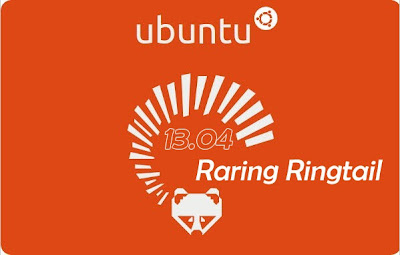
Ubuntu releases ( Ubuntu 13.04 download ) are made semiannually by Canonical Ltd, the developers of the Ubuntu operating system, using the year and month of the release as a version number. The first Ubuntu release, for example, was Ubuntu 4.10 and was released on 20 October 2004.Consequently, version numbers for future versions are provisional; if the release is delayed until a different month (or even year) to that planned, the version number changes accordingly.
Ubuntu releases are timed to be approximately one month after GNOMEreleases, which are in turn about one month after releases of X.Org, resulting in each Ubuntu release including a newer version of GNOME and X.
Every fourth release, in the second quarter of even-numbered years, has been designated as a Long Term Support (LTS) release, indicating that they are supported and receive updates for five years, with paid technical support also available from Canonical Ltd. However the desktop version of LTS releases before 12.04 were supported for only three years. Releases 6.06, 8.04, 10.04, 12.04 and 14.04 are the LTS releases. Non-LTS releases prior to 13.04 have typically been supported for 18 months, and have always been supported until at least the date of the next LTS release. This has changed, however, for 13.04 and subsequent non-LTS releases, with the support period being halved to 9 months.
On 17 October 2012, Shuttleworth announced that Ubuntu 13.04 would be namedRaring Ringtail and said about this release “[In the next six months] we want to have the phone, tablet and TV all lined up. So I think it’s time to look at the core of Ubuntu and review it through a mobile lens: let’s measure our core platform by mobile metrics, things like battery life, number of running processes, memory footprint, and polish the rough edges that we find when we do that."
The Wubi installer was dropped as of 13.04, due to its incompatibility with Windows 8, and general lack of support and development. Previously, on 29 October 2012, at Ubuntu Developer Summit Registration there had been a discussion of redesigning Wubi for Ubuntu 13.04.
Ubuntu 13.04 was released on schedule on 25 April 2013.
In reviewing Ubuntu 13.04 Jim Lynch from Desktop Linux Reviews said, "I found Ubuntu 13.04 to be a slightly disappointing upgrade. While there are definitely some enhancements in this release, there’s also nothing very special about it ... Alas, there’s nothing in Ubuntu 13.04 that makes me want to consider it for use as my daily distro. Don’t misunderstand me, there’s nothing overtly wrong with Ubuntu 13.04 either. It installed and performed very well for me. Unity 7 also has some helpful and attractive updates that Ubuntu users will enjoy, and there are other things in this release that help improve the overall Ubuntu experience...I suspect it is simply because Ubuntu has settled into a comfortable middle age, it works and it works very well for what it does.
Mark Shuttleworth announced on 31 October 2011 that by Ubuntu 14.04, Ubuntu will support smartphones, tablets, TVs and smart screens.
On 18 October 2013, it was announced that Ubuntu 14.04 would be dubbed "TrustyTahr".
This version was released on 17 April 2014, and is the 20th release of Ubuntu. Shuttleworth indicated that the focus in this development cycle will be a release that is characterized by "performance, refinement, maintainability, technical debt" and encouraged the developers to make "conservative choices". Technical debt refers to catching up and refining supporting work for earlier changes. The development cycle for this release focused on the tabletinterface, specifically for the Nexus 7 and Nexus 10 tablets. There will be few changes to the desktop as 14.04 will use the existing mature Unity 7 interface. Ubuntu 14.04 includes the ability to turn off the global menu system and use Locally Integrated Menus instead for individual applications. Other features are the retention of Xorg and not Mir or XMir, a Unity 8 developers' preview, new mobile applications, a redesigned USB Start-Up Disk Creator tool, a new forked version of theGNOME Control Center, called the Unity Control Center and default SSD TRIM support. GNOME 3.10 is installed by default.
Ubuntu 13.04 download Free Full Version Activated :- download now
Thanks For Reading. Plzz share this post it just takes a second












